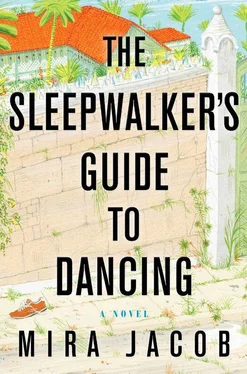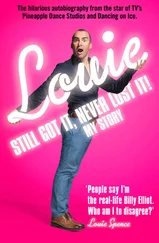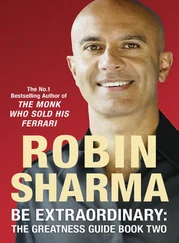“You think he’s going to wake up for this?”
Her mother looked over her reading glasses. “Of course not.”
“Because he can’t hear you.”
“Not true. I read they can hear you and they understand and it calms them.”
“They?”
“Coma patients.”
“Akhil isn’t in a coma.”
“Doesn’t matter. His brain will be stimulated.”
“By Anguilla?”
“Amina, I do not have all day. Someone has to make the dinner and set the table, and you can either shut up your mouth now or you can go to your room !” The last part came out in a yell, and Akhil’s eyes cracked open. They blinked twice in the land of the awake like a sea mammal penetrating the surface of the ocean and then shut again. Kamala watched and turned to the encyclopedia with renewed fervor. “The British established the first permanent European colony on Anguilla in 1650.”
Amina stared at the glossy green cover of Heart of Darkness . She did not want to go to her room. She did not want to listen to her mother read about Anguilla.
“Despite a few invasion attempts by the French, Anguilla has remained a Crown Colony ever since. Then in 1969 the British Royal Marines were going to go in and kill everyone for order and it would have been a bloodbath, but those people treated it like an independence day parade.”
“It says that?”
“No, I just remember that part.”
Amina put Heart of Darkness down. She listened to the brief history of Anguilla, watching the lines on her mother’s face soften, her cheeks grow fuller, suddenly plump with purpose.
“The currency is the Eastern Caribbean, though the dollar is widely accepted,” Kamala said, closing the book with a muffled thump.
Amina looked at her. “That’s all?”
“That’s all for now.” Kamala struggled to lean over Akhil’s legs and placed the unwieldy book at the foot of the couch with a thump.
“Legs,” she said. Amina stood up and walked over to the couch, wedging her arms under Akhil’s legs and lifting them up. Kamala slid out, stood up, wobbling a little. She took off her reading glasses and smoothed down her sari, pulling it tight over one shoulder.
“Now what?” Amina asked, dropping her brother’s legs. He rolled farther into the couch, burying his face in the seam.
“Now dinner. Come and set the table.”
The next night was asteroids. The next was Athens. Amina went to her room for Australia (she had done a report on it in fourth grade, using the same encyclopedia) but came back the next night armed with her camera.
“The Aztec calendar utilized a 260-day year and a 52-year time cycle,” her mother read, and Amina crouched so that she was taking in the full length of her brother, his feet growing like strange roots out of Kamala’s sari.
By John Wilkes Booth, Amina was on her sixth roll of film, and the family had entered an entirely new phase, one that would fill her with peace when thinking about it later. It wasn’t just the muzzle on Akhil’s vitriol that sent calm down the hallways like the scent of summer, it was the soothing sound of Kamala’s reading, the triumph that bloomed in her eyes with each finished passage. January’s snowstorms began, settling thin white blankets over the cottonwoods and ice over the ditches, and Amina wandered outside to get pictures of her mother and brother through the living room window, tight in their coziness. The days began to grow fractionally longer, Kamala moved on to Catholicism and cicadas, and, as though responding to the incantation of a spell, Akhil’s eyes began to crack open for increasingly longer intervals. He would listen wordlessly, watching the ceiling as though it were another galaxy.
Akhil woke from the Big Sleep during da Vinci. Kamala was just launching into the sad account of the rapidly eroding Last Supper when he said his first full sentence.
“I want to paint a mural.” His tongue darted out, licking dry lips.
A mural? Amina leaned forward to see if his eyes were really open. They were.
“On the ceiling,” he clarified. “In my bedroom.”
It was early February. Outside, the prairie grass had flattened into grayish yellow slicks, and a northern wind blew against the tin roof, making the house creak. Kamala put the book down and turned to him.
Akhil looked at her. “Can I?”
“Okay.”
“Really?”
Kamala nodded slowly. When he smiled at her, she patted his legs and he lifted them. Open sesame. Kamala stood and walked toward the hall with a sleepwalker’s disregard for her surroundings. “Let’s go, then.”
“Now?” Akhil asked.
“Now?” Amina echoed.
“Ben Franklin’s closes at eight.”
In the store, under the glare of fluorescent lighting, Kamala and Amina pushed the cart forward while Akhil gathered big tubs of powdered tempera paint. He strolled the aisle ahead of them, pants hanging slack around bony hips, three inches of sock exposed at his ankles.
“So much of white?” Kamala asked, peering into the basket.
“It’s for mixing.”
“Ah.” She smoothed her braid down one shoulder, glancing at the tubes of oil paints hung like bats from the displays on either side of them.
“I’ve got to find the brushes,” Akhil said, turning left abruptly and wandering into the fluorescent haze.
“Ma,” Amina said anxiously when he was gone.
“Mmm?” Kamala had pulled one of the tubes down and now cradled it in cupped palms. “Cadmium yellow! Should we buy it?”
“What? No! That’s oil paint! It’s expensive!”
Kamala turned over the tube, eyebrows shooting up at the price tag. “My God, no jokes!” She placed it back on the shelf. “Oh well.”
“Ma, what are we doing?”
“We’re buying Akhil paint for his mural.”
“Akhil doesn’t have a mural.”
“Because he doesn’t have any paint.”
Amina moved the cart to the left as a woman with half a cart full of pink yarn passed. “But he’s never painted anything in his life!”
“So? First time for everything, nah?”
Amina bit a little of her thumbnail off, spit it into the aisle. “Well, can I get more film?”
“We just bought you film last week.”
“One roll. I need more.”
“You’re using it too fast.”
“No I’m not! Ma, seriously.” Amina pulled into the model-plane aisle. “And besides, how do you know he’s even going to do anything with this stuff? That he’s not going to fall back asleep tomorrow until June?”
Kamala didn’t answer her, marveling at a bin of sea sponges.
At the register, they bought one full set of tempera paint, three extra tubs of white, six paintbrushes in various sizes, a stenciling kit, and a sea sponge.
“Really, Mom, I don’t need it,” Akhil protested about the sponge.
“You might!”
“For what?” Amina glared at the entire contents of the basket.
“For effects, dummy!” Kamala handed the clerk at the register her credit card, smiling in a conspiratorial way. “My son is an artist.”
“I told you why Guevara, right?”
“Yes.”
They were taking a detour across the west mesa, driving at a thundering pace, the graded dirt road under them making Akhil’s voice vibrate.
“Because, you know, the prophecy wasn’t totally clear on who to pick. So that part is up to me. And I recognize that Che comes with certain complications, but I think it’s important to recognize the spirit of a true revolutionary.”
By “the prophecy,” Akhil was referring to a recurring dream he had had during the Big Sleep, giving him a glimpse into a future in which he was destined to be “a great leader among other greats.” (“Like Madonna?” Amina had asked. “Like Mandela,” he had answered.) While the hard details of exactly what Akhil saw in his future were never revealed (Was he strolling through the U.N.? Flying Air Force One? Sitting in an expensive leather desk chair that swiveled?), the way he would reach his destiny was clear: He would paint a mural of the Greats. It would harbinger change. And now, one week later, he had already fashioned a collage that would serve as the basis for the mural, reimagining the Sandias as a sort of Rushmore-esque homage to Gandhi, Che Guevara, Martin Luther King, Nelson Mandela, and Rob Halford.
Читать дальше












